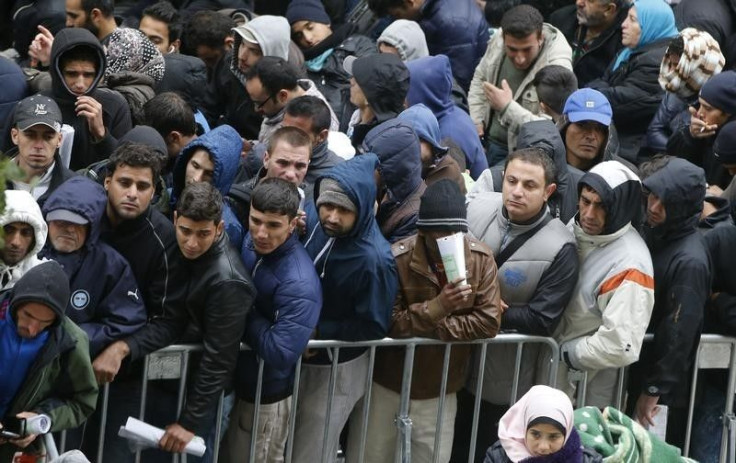German Chancellor Angela Merkel Rules Out Tax Increases To Pay For Refugees

BERLIN (Reuters) -- German Chancellor Angela Merkel ruled out Sunday tax increases to help deal with the biggest influx of refugees since World War II. "We can be glad that our economy has been well-managed for years and that our economic situation is currently good," Merkel said in an advance preview of an interview to be published in the daily Bild Monday. Asked whether she could give her word that there would be no tax increases in connection with the refugee crisis, Merkel replied, "Yes, definitely."
The Sueddeutsche Zeitung reported Saturday that the German government and the European Commission were mulling a solidarity tax to help cover the costs of handling a record-breaking influx of asylum seekers.
German and EU officials denied the report.
With relatively liberal asylum laws and generous benefits, Germany is the EU's biggest recipient of people fleeing war in the Middle East and economic migrants from southeastern Europe.
Vice Chancellor Sigmar Gabriel said Sunday Germany could expect to receive more than a million refugees this year.
Merkel said "misplaced incentives" might be attracting migrants seeking to benefit from Germany's welfare system. "I know that the pocket money that we give refugees is high by European standards," she said, adding that countries such as the Netherlands and Luxembourg handed out "significantly less.” She said refugees at centers for new arrivals should predominantly get noncash benefits in the future.
Merkel told Bild that a new law that will reduce benefits to minimum subsistence levels if asylum applications are rejected should come into force in November.
(Reporting by Caroline Copley; Editing by Kevin Liffey)
© Copyright Thomson Reuters {{Year}}. All rights reserved.





















